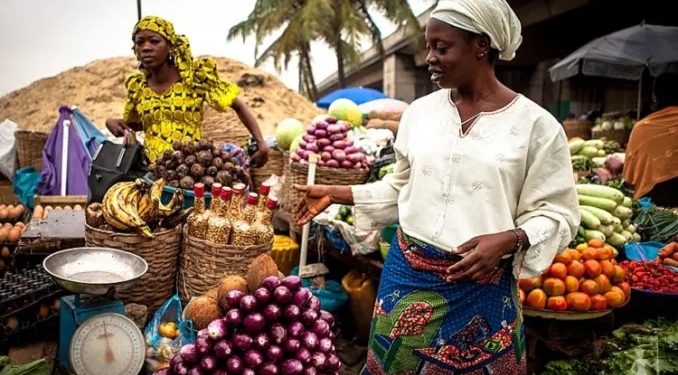Nigeria’s imported food inflation rate surged to 36.38% in June 2024, marking a 1.55 percentage point increase from May’s 34.83%, according to recent Consumer Price Index (CPI) data released by the National Bureau of Statistics (NBS). This increase underscores the growing financial pressure on consumers as the naira continues to weaken.
The average price index for imported food jumped to 806.0 in June 2024, a significant rise from 591.0 recorded in June 2023. This sharp increase follows the Central Bank of Nigeria’s (CBN) unification of all forex market segments, which led to a substantial depreciation of the naira.
The trend of rising imported food costs has been consistent throughout the first half of 2024. Starting with an inflation rate of 26.29% in January, the rate climbed steadily each month: 29.81% in February, 32.89% in March, 34.01% in April, and 34.83% in May, culminating in June’s high of 36.38%. While the pace of increase showed some deceleration between March and May, it picked up again in June.
The overall inflation rate in Nigeria also saw an uptick, reaching 34.19% in June 2024 from 33.95% in May. This figure is significantly higher than the 22.79% recorded in June 2023. Month-on-month, the inflation rate rose to 2.31% in June from 2.14% in May.
Imported food inflation has outpaced the headline inflation rate, which stood at 34.17% in June 2024. General food inflation was even higher at 40.87%, up from 40.66% in May. Year-on-year, food inflation increased by 15.62 percentage points from 25.25% in June 2023. On a monthly basis, the food inflation rate rose to 2.55% in June from 2.28% in May, driven by higher prices of items like groundnut oil and palm oil.
Naira’s depreciation has been a key driver of these inflationary pressures. By the end of June 2024, the exchange rate closed at N1,503.3/$1, reflecting a 1.3% decline for the month. From December 2023 to June 2024, the naira depreciated by 40%, closing 2023 at N907.11/$1 and dropping further in the first half of 2024.
In response to the rising food costs, the Trade Union Congress (TUC) has urged the Federal Government to import essential food items immediately. Minister of Information Mohammed Idris echoed this sentiment, indicating that the government is considering temporary food importation to ease prices. However, President Bola Tinubu has advocated for self-sufficiency, emphasizing the administration’s focus on boosting domestic food production.
The International Monetary Fund (IMF) highlighted the food crisis in Nigeria and other sub-Saharan countries, attributing it to a heavy reliance on imported foods. To combat this, the Nigerian government recently approved a 150-day duty-free window for importing maize, husked brown rice, and wheat.
However, this policy has faced criticism. Dr. Akinwunmi Adesina, President of the African Development Bank (AfDB), warned against relying on food imports to stabilize prices, suggesting that it could undermine Nigeria’s agricultural policy. Similarly, Arc. Kabir Ibrahim, National President of the All Farmers Association of Nigeria (AFAN), argued that duty-free importation could erode gains in local production. He called for investments in agricultural inputs to create a sustainable food system in Nigeria.
As Nigeria grapples with these economic challenges, the government’s approach to balancing importation and local production will be crucial in stabilizing the nation’s food prices and ensuring long-term food security.









